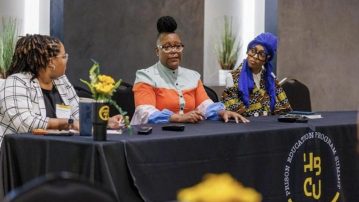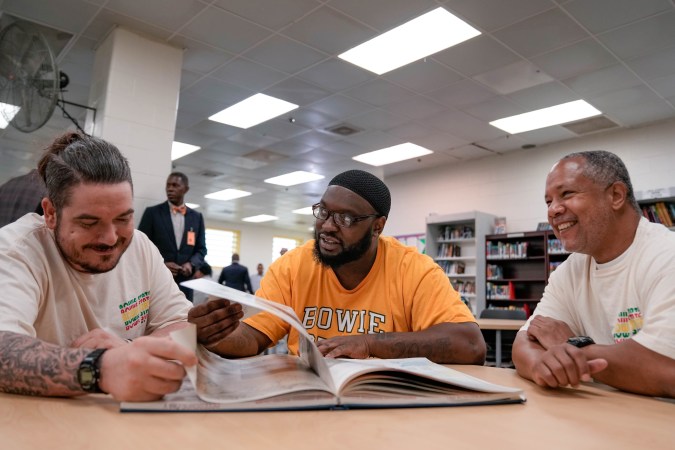Bowie State’s Groundbreaking Summit Is Redefining the Prison-to-College Pipeline
A look at how Bowie State is supporting prison reform through education and how HBCUs are helping strengthen efforts

With June typically marking the kickoff of summer, it’s also a time that marks observance of many important holidays for marginalized communities, like Juneteenth and Pride Month. While we excitedly prepare to crank up the grill for summer barbecues or proudly raise rainbow flags high, this a month to celebrate, reflect, and raise awareness, especially considering we’re in the midst of a volatile political climate that’s aggressively erasing DEI agendas across the nation.
This month reminds us that the work sparked by what The New York Times calls one of the largest movements in history, the Black Lives Matter Movement, is far from over. The fight for justice continues on, not just from how we’re handled in the streets, but also behind antiquated American prison systems.
Prison reform is one of the most urgent and overlooked battlegrounds for racial justice. According to the Prison Policy Initiative, the U.S. has the highest incarceration rate of any independent democracy on earth, and worse, every single state in America incarcerates more people per capita than most nations.
The unwanted truth about it all: Black Americans account for nearly 40% of the incarcerated, and unfortunately our futures are often derailed by a system built more for punishment than rehabilitation. That’s why Bowie State University’s Inaugural Prison Education Summit matters so much.
Held this past April, just ahead of Juneteenth, the summit brought together over 200 HBCU leaders, criminal justice experts, and nonprofit organizations to talk about building what is referred to as the “Prison-to-HBCU Pipeline” for the very first time. At its core, the pipeline is a progressive strategy: incarcerated individuals deserve not only a second chance, but access to quality, culturally affirming higher education.

“Providing education to incarcerated individuals is more than just rehabilitation, it’s a civil rights issue. HBCUs have had a long-standing tradition of serving underrepresented communities, and this summit underscores our commitment to creating meaningful change.” said Dr. Aminta Breaux, President of Bowie State University.
The conference hits on three main objectives: Building Partnerships & Collaborative Conversations, Resource Sharing, Fostering Social Justice & Empowering Change Agents, to help inspire folks to join a movement to empower others and focus on practical steps to building and sustaining prison education programs.
This event was brought to life by a host of intentional workshops, featured panel discussions, and carefully picked keynote speakers who influenced and drove conversations that better equip HBCUs to serve communities more holistically.
HBCUs Reducing Recidivism and Advocating for Education
Historically Black Colleges and Universities have always provided resources, legal representation, and instructional programs like the Master of Administration in Justice-Involved-Care (MAJIC). This work represents a big step in addressing challenges of recidivism and equipping students with the skills necessary to transform the lives of justice-involved individuals.
HBCUs play a big role in partnering with correctional facilities to provide instruction to influence preparation for reentry into society with help from federal initiatives such as The Second Chance Pell Program. It provides Pell Grant eligibility for incarcerated individuals.
“Five years into the Second Chance Pell, more than 28,000 people in prison have enrolled in postsecondary education, setting themselves up for greater success upon release.” says Margaret diZerega, Director at the Vera Institute of Justice.
Institutions like Mississippi Valley State University, the first HBCU to offer a prison college program in Mississippi, Morehouse College, Claflin University, and Howard University, have played an integral role in providing a chance to make our communities stronger and safer.
Bowie State University is now at the forefront— reigniting the call to action, helping drive the narrative that education for those behind bars deserves a spot at the epicenter of equitable community care.
For more information on the HBCU Prison Education Summit, check out this website.



